19 Jul 2019
This guide contains step-by-step instructions and tips on how to write a hook for research paper that will be a magnet for your reader's attention
A sheet of paper to jot down ideas.
A pen and your imagination.
You are probably familiar with the concept of "hook sentence" in fiction and journalism. This expression is pretty self-explanatory: it must catch your reader like a hook catches fish, so they won't be able to leave your text until they've read it through. The only difference – no one is hurt and your reader is glued to your text on their own accord.
Blurbs that hook the reader and sell books are often shocking or at least somewhat provocative. "What if you discovered that your wife is a werewolf?" or something along those lines. However, how to write a hook for a research paper? That's a piece of factual non-fiction. You cannot put a clickbait title on chemistry research. Or can you? Even something as factual as academic writing needs an attentions grabber – and with the help of our tips, you will always be able to craft the perfect one.
- Remember what made you choose this topic
- Think why it is important for your reader
- Create a scenario
- Use tropes for vivid image
- Surprise your audience
- Trim the fat to make it snappy





You can use it on one order over $
 Copy
Copy


For example, a rhetorical question makes an effective hook for a research paper: "Did you know that more people have access to a mobile phone than a toilet?" Plus, here we have contrast – a winning combo.



More examples of good first lines
The following examples are from fiction books, yet they all make the reader want to read further, so they do their job. Once you see it, you will easily implement the general principles behind them for any kind of text.
Absurd and random
"Joost had two problems: the moon and his moustache." – Six of Crows, Leigh Bardugo.
"The morning after noted child prodigy Colin Singleton graduated from highschool and got dumped for the nineteenth time by a girl named Katherine, he took a bath." – An abundance of Katherines, John Green.
Why it's good: It's witty and weird enough to tease us. Yet it's also dramatic, it drops us right in the middle of events.
Enigmatic
"In a hole in the ground there lived a hobbit." – The Hobbit, J.R.R. Tolkien.
"It was the day my grandmother exploded." – The Crow Road, Iain Banks
Why it's good: The phrase leaves your reader puzzled and intrigued. After reading this they'll be thinking: "What's hobbit?" or "Exploded? How? Why? Tell me more!"
Inherently conflicted
"It was the best of times, it was the worst of times, it was the age of wisdom, it was the age of foolishness, it was the epoch of belief, it was the epoch of incredulity, it was the season of light, it was the season of darkness, it was the spring of hope, it was the winter of despair."– A Tale of Two Cities, Charles Dickens.
"Quentin did a magic trick. Nobody noticed." The Magicians, Lev Grossman.
Why it's good: your reader is baffled with this oxymoron. Something unusual is going on here and your reader wants to know why.
A Confession
"In my younger and more vulnerable years my father gave me some advice that I've been turning over in my mind ever since." – The Great Gatsby, F. Scott Fitzgerald
"A Note from Greg Gaines, Author of this book. "I have no idea how to write this stupid book. Can I just be honest with you for one second?" Me and Earl and the dying girl, Jesse Andrews.
Why it's good: Honesty is disarming. Moreover, when spoken in the first person, the words seemed to be addressed directly to you and you feel you can't help it but listen to this confession through.
- The Basics Of Self Care Essay Sample
- Focus Term Papers
- Professionalism Term Papers
- Understanding Term Papers
- Psychology Term Papers
- Thinking Term Papers
- Design Term Papers
- Sexual Abuse Term Papers
- Pressure Term Papers
- Wellness Term Papers
- Health Care Term Papers
- Strategy Term Papers
- Taxes Term Papers
- Duty Term Papers
- Decision Term Papers
- Science Term Papers
- Compensation Term Papers
- Administration Term Papers
- Acceptance Term Papers
- Industry Term Papers
- Entrepreneurship Term Papers
- Software Term Papers
- Training Term Papers
- Microsoft Term Papers
- Success Term Papers
- Customers Term Papers
- Skills Term Papers
- Talent Term Papers
- Budget Term Papers
- Workforce Term Papers
- Challenges Term Papers
- Interface Case Studies
- Cloud Computing Case Studies
- Validation Case Studies
- Ambition Case Studies
- Solution Case Studies
- Inheritance Case Studies
- Innovation Case Studies
- Patient Case Studies
- Importance Case Studies
- Income Case Studies
- Cookie Case Studies
- Implementation Case Studies
- India Case Studies
- Import Case Studies


